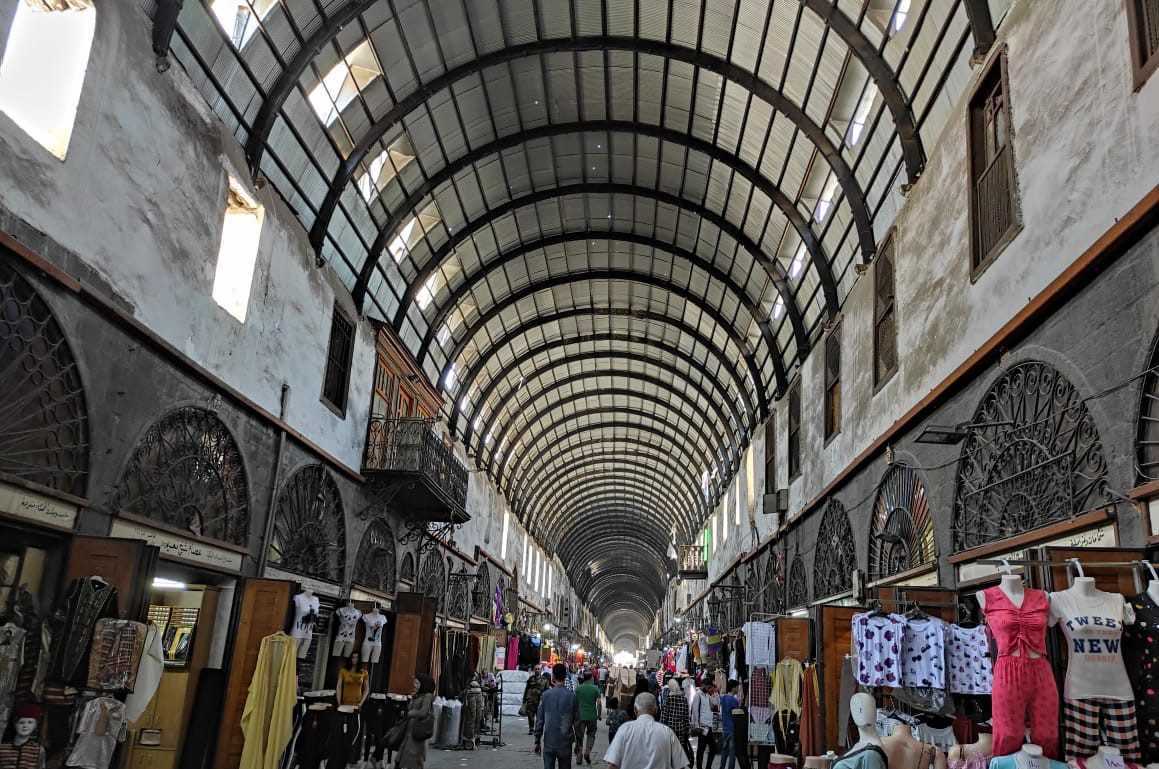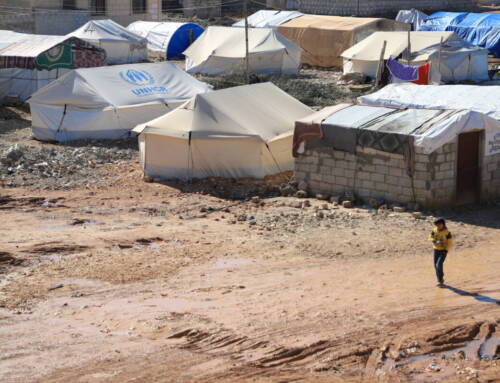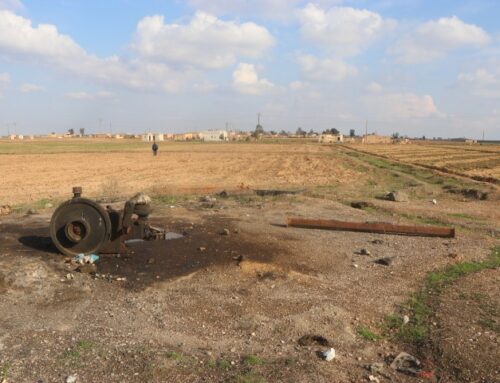Caught between customs and the cost of living, marriage a difficult dream for many Syrians
In Damascus, as Syria’s economy spirals and the cost of living soars, some young people are downsizing their weddings, forgoing customs once thought unbreakable, or giving up on getting married altogether.
13 May 2022
DAMASCUS — After years of war resulting in economic decline and a deteriorating standard of living—which reached its peak in the past two years—many residents of the Syrian capital Damascus and its countryside have set aside previously unbreakable customs, especially regarding engagement and marriage rituals.
In a time when more than 90 percent of Syria’s population lives below the poverty line, some young people are making do by announcing their marriages without holding wedding parties, due to their high cost compared to low wages and the Syrian pound’s depreciation. Others, like Samer, a 39-year-old Damascus resident, are abandoning the idea of marriage altogether.
Samer works at a private financial company and earns SYP 500,000 a month ($127 according to the current black market exchange rate of SYP 3,920 to the dollar)—a “good salary” compared to the estimated average salary of SYP 92,000 ($23). Still, like many, he has set aside the thought of marriage. “If I get married, I’ll need twice my current income to live with my wife,” he told Syria Direct.
The average monthly cost of living for a family of five is SYP 2.8 million ($714), according to the Kassioun economic index published on April 26 by the Syrian People’s Will Party. The publication called the high cost of living “an unprecedented increase within a record period of time that threatens millions of Syrians who are witnessing a catastrophic gap between the costs of living and the minimum wage of Syrian workers.”
Capitulating to costs
Samer gave up on marriage after an unsuccessful attempt in 2020. He decided to get engaged, but his prospective fiancée’s family required a high dowry, and for the wedding to be held at a well-known Damascus hotel, preventing him from continuing the relationship. The family “asked for a SYP 10 million advance dowry, and the same [amount] for the deferred dowry,” or $5,100 total.
He could not pay that much, on top of other costs such as “the wedding and engagement party, and buying gold,” as the amount he was asked to buy amounted to around SYP 6 million ($1,530). The cost per guest for a wedding party at the hotel came to SYP 100,000 ($25), or $2,500 for a wedding with 100 guests.
The family of the woman Samer hoped to marry knew his economic situation, but “refused to give up their demands and marriage customs,” so he let go of the idea. “Getting a cylinder of [natural] gas has become a dream, let alone marriage, which is impossible today,” he said.
According to UNHCR figures released in March 2022, an estimated 14.6 million Syrians are in need of humanitarian assistance and other forms of aid, while 5.9 million need help to secure safe housing.
Deteriorating economic conditions, and young Syrian men turning away from marriage has led to an unprecedented rate of women remaining unmarried, according to a 2019 piece published by Al-Baath newspaper, the mouthpiece of the ruling Arab Socialist Baath Party.
Marriage without a wedding
In September 2021, Safwan, 39, decided to hold a “small house party” to announce his marriage. It was not an easy decision to make, he told Syria Direct, because of “my fiancée’s opposition and her insistence on the party and wearing the white dress.”
The couple negotiated for a full month before Safwan was able to convince his fiancée to “buy some necessary household items instead of spending the money on the wedding party,” and he agreed to make up for it by “going to a party photography salon to take some commemorative photos in the white dress.”
Safwan is a schoolteacher in Damascus, and makes SYP 120,000 per month ($31). Renting a car for one day costs SYP 100,000 ($25) and booking a hall with hospitality for 100 people costs SYP 4 million ($1,020), he said.
Despite his attempts to cut down on marriage costs, the teacher spent about SYP 1.7 million ($1,700) on “my wife’s beauty salon fees, a car rental, and a bouquet” as well as “dinner in a restaurant” for the two of them alone. He wondered, “How much would we pay if we had a wedding party?”
Still, he feels lucky compared to other young Syrians. He owns a house outright in an informal neighborhood of Damascus, and his wife, a government employee, helps “bear some household expenses.”
Economic recession
For decades, weddings have fed Syria’s national economy, especially in the active spring and summer wedding seasons. But Samia, 56, the owner of a wedding dress rental shop in Damascus, welcomed this year’s season with “a big decline.” Over the past two years, business was the worst it has been since 2011.
The price of renting a wedding dress ranges between SYP 2-5 million ($500-1,275), she said. As a result, “many people dispensed with wedding dresses, and reduced their weddings to pared-back family soirees,” negatively impacting the commercial wedding sector.
Beauty salons usually differentiate the prices for brides and other customers. “Bridal makeup starts at SYP 1 million [$255],” said Farah, an employee at a beauty salon in Damascus. Some brides “hide the fact that they are getting married from the owner, and don’t tell her what kind of occasion it is,” she said.
Wedding hall owners have also been impacted by Syria’s economic situation. While some would-be clients are reluctant to rent a hall for the wedding party, others reduce the number of guests to “fewer than 50 people, which has forced many halls to redesign with small spaces that suit the current situation,” said Samir, a wedding hall owner in Damascus.
Wedding halls are a less expensive option than hotels, but even so “the cost per person starts at SYP 50,000 [$13],” Samir said, meaning the cost of the cheapest wedding party is estimated at around SYP 2.5 million ($260). That does not mean there are no lavish weddings with large numbers of guests, but “they are for a small segment of society,” he added.
According to common prices Syria Direct observed, the average cost of a wedding in Syrian government-controlled areas of Damascus and its countryside is more than SYP 17.5 million ($4,465). That figure includes not only wedding supplies, but also furniture and basic appliances the groom-to-be typically buys to furnish the couple’s new home. The average individual income in the area, meanwhile, is less than SYP 1.1 million ($276).
For example, the prices of wooden home furnishings range between SYP 1.5-5 million ($382-1,275), Alaa Saima, who owns a furniture store in the Bab Sraijah area of Damascus, told Syria Direct. Prices vary “according to the quality of wood and manufacturing,” he said.
Saima attributed the high cost of wooden furniture to the deterioration of the Syrian pound against the dollar, driving up the cost of wood and raw materials that go into furniture manufacturing. He also pointed to “government-affiliated traders controlling the wood market and its availability.”
Under these difficult economic circumstances, Samer’s thoughts are far from marriage. They have turned instead to “emigrating from Syria.” He has applied for asylum at the Canadian embassy in Lebanon, and is waiting for a response. As for marriage, “I might think about it again if I left and my material conditions improved.”
This report was originally published in Arabic and translated into English by Mateo Nelson.







